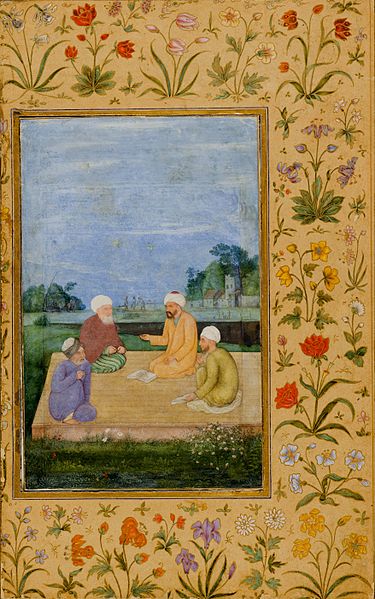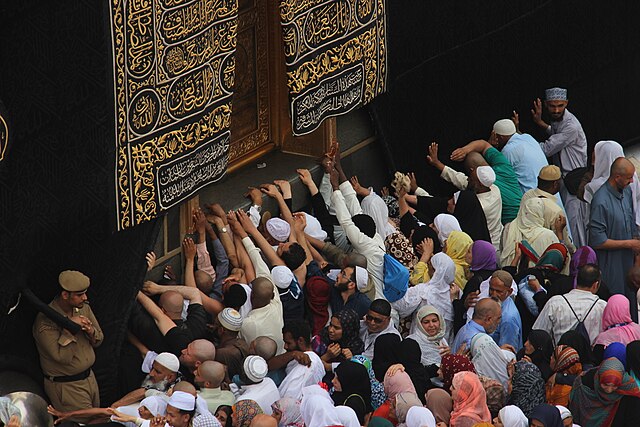A wali is most commonly used by Muslims to indicate a saint, otherwise referred to by the more literal "friend of God".
A Persian miniature depicting the medieval saint and mystic Ahmad Ghazali (d. 1123), brother of the famous al-Ghazali (d. 1111), talking to a disciple, from Meetings of the Lovers (1552).
A Persian miniature depicting Jalal al-Din Rumi showing love for his disciple Hussam al-Din Chelebi (ca. 1594)
A Mughal miniature dated from the early 1620s depicting the Mughal emperor Jahangir (d. 1627) preferring a Sufi saint to his contemporary, the King of England James I (d. 1625); the picture is inscribed: "Though outwardly kings stand before him, he fixes his gazes on saints."
An Mughal miniature of A Discourse between Muslim Sages (ca. 1630), thought to be executed by the court painter Govārdhan.
Muslims are people who adhere to Islam, a monotheistic religion belonging to the Abrahamic tradition. They consider the Quran, the foundational religious text of Islam, to be the verbatim word of the God of Abraham as it was revealed to Muhammad, the main Islamic prophet. Alongside the Quran, Muslims also believe in previous revelations, such as the Tawrat (Torah), the Zabur (Psalms), and the Injeel (Gospel). These earlier revelations are associated with Judaism and Christianity, which are regarded by Muslims as earlier versions of Islam. The majority of Muslims also follow the teachings and practices attributed to Muhammad (sunnah) as recorded in traditional accounts (hadith).
Muslims at the Kaaba, Mecca.





